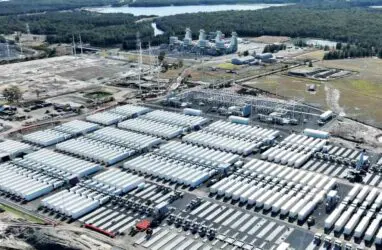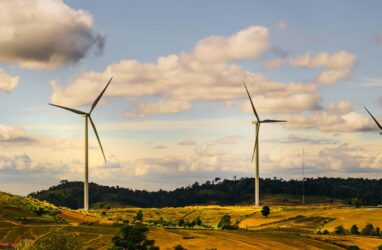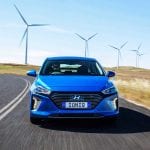Feed aggregator
ADB approves $500 mln loan to help Philippines implement NDC, adapt to climate change
China solar giant Jinko seeks federal approval for massive PV and battery project in Queensland
The post China solar giant Jinko seeks federal approval for massive PV and battery project in Queensland appeared first on RenewEconomy.
Australia on track to meet climate targets, as nature reform laws stall again
Community meetings for proposed Victoria wind farm cancelled due to “safety concerns”
The post Community meetings for proposed Victoria wind farm cancelled due to “safety concerns” appeared first on RenewEconomy.
Australia’s newest and biggest battery charged with surprise role in keeping lights on in NSW heatwave
The post Australia’s newest and biggest battery charged with surprise role in keeping lights on in NSW heatwave appeared first on RenewEconomy.
‘A dose of nature’: each time you visit a national park, you save the health budget almost $100
Will Labour’s 2030 green energy goal cost more than 2035? They should come clean | Nils Pratley
Ed Miliband argues the UK should race towards becoming a ‘clean energy superpower’, but costs to the consumer shouldn’t be ignored
The government’s plan to decarbonise the UK’s electricity system by 2030 is a vast undertaking. Energy companies will throw £40bn-plus annually at the effort, backed by financing that ultimately affects consumers’ bills. So it is extraordinary that no official body seems able to answer this question: will it cost more to complete the job by 2030 rather than by the old 2035 timetable? Is it more expensive to go faster?
That is not to dispute the necessity of generating electricity from clean domestic sources, an ambition shared widely across the political spectrum for reasons of security of supply and climate emergency. But the pace of decarbonisation can clearly also affect the cost for consumers, a point Ed Miliband, the energy secretary, tends to skip over too breezily when he argues that security, sustainability and affordability are now perfectly aligned.
Continue reading...Washington releases updated CFS draft with book-and-claim, avoided methane provisions
NSW consumers asked to dial back electricity use as coal and gas plants go missing in heatwave
The post NSW consumers asked to dial back electricity use as coal and gas plants go missing in heatwave appeared first on RenewEconomy.
Tamworth council backs Greens move to continue fight against contested wind project
 Tamworth Regional Council to join legal proceedings to block the Hills of Gold wind farm.
Tamworth Regional Council to join legal proceedings to block the Hills of Gold wind farm.
The post Tamworth council backs Greens move to continue fight against contested wind project appeared first on RenewEconomy.
Ace Power hits go on brave new proposal for a New England wind farm, along with solar and battery
The post Ace Power hits go on brave new proposal for a New England wind farm, along with solar and battery appeared first on RenewEconomy.
Little clarity on emissions pathway could complicate China’s climate targets, report says
Australia urged to go harder on emissions after wind, solar and EVs put 2030 target back on track
The post Australia urged to go harder on emissions after wind, solar and EVs put 2030 target back on track appeared first on RenewEconomy.
Environmental groups sue California county for CCS project approval
British Columbia invests C$15 mln in local carbon capture firm
More airlines need to follow our example and invest in CDR, says major European airline
ANALYSIS: International carbon markets now “open for business” but patience needed before scale hits
Live in an apartment and want to charge an electric car at home? Here are 4 ways to help that happen
The Guardian view on cruise ships: a licence to pollute | Editorial
The environmental harm caused by this shapeshifting, underregulated industry must be tackled
Local pushback against cruise ships in the world’s top tourist destinations is nothing new. More than three years ago, these vast vessels were barred from Venice’s lagoon on grounds of the risk they posed to the city’s historic buildings. This summer, cruise ships in Amsterdam and Barcelona were targeted by protesters, on grounds of chemical pollution but also as part of a wider movement against overtourism (as the negative impacts of huge influxes of visitors have become known). But – as revealed this week in a series of Guardian articles, The real cost of cruises – the environmental and social impact of this fast-growing industry goes way beyond individual cities, and requires action on a global scale.
The carbon emissions of a cruise are roughly double that of the equivalent flights plus a hotel stay. The industry is also responsible for a vast quantity of waste discharged directly into the sea, as well as high levels of toxic air pollution in the ports where ships are docked – usually with their engines running. Once seen as the exclusive pursuit of a minority of wealthy retired people, these holidays are now mainstream, with vast floating resorts designed and marketed for families and young adults. The largest ships have up to 20 floors and room for several thousand people.
Continue reading...








